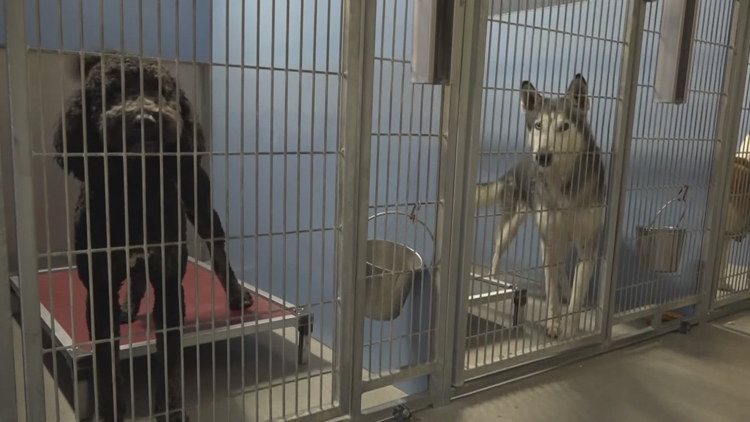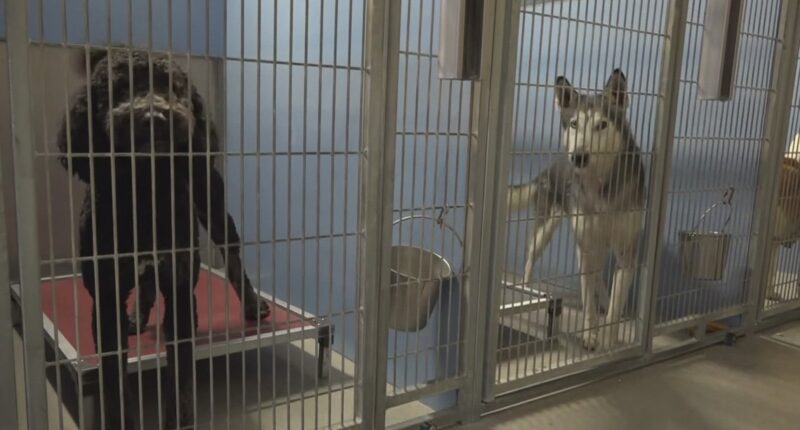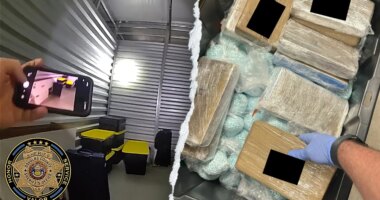Share this @internewscast.com

The City of Jacksonville is gearing up for an important vote on November 25 that could significantly impact how stray animals are handled within its jurisdiction. The proposal under consideration seeks to reduce the holding period for stray animals at the Animal Care and Protective Services (ACPS) from six days to just three before they become eligible for adoption.
In Jacksonville, this proposed change has sparked a heated debate. Advocates for the amendment argue that it would alleviate overcrowding issues at the shelter and expedite the process of placing animals in loving homes. On the other hand, opponents express concerns that this shortened timeframe could potentially lead to unintended separations of pets from their families, particularly affecting those who face challenges in navigating the shelter system.
To engage the community in this crucial decision, a meeting is scheduled for Thursday evening at City Hall. This gathering will provide residents with their first opportunity to voice their opinions directly to city officials.
Among those concerned is Vickie Nelson, a seasoned rescue volunteer. Nelson is involved with “Lost Pets of Jacksonville,” one of Florida’s largest networks for reuniting lost pets with their owners. She emphasizes the difficulties and delays that pet owners often face when trying to locate their missing animals, suggesting that the proposed change could exacerbate these challenges.
A community meeting is set for Thursday night at City Hall, giving residents their first chance to directly weigh in.
For longtime rescue volunteer Vickie Nelson, the proposal raises red flags. Nelson helps run “Lost Pets of Jacksonville,” one of the largest lost-and-found pet groups in Florida, and says she’s seen firsthand how confusing and time-consuming it can be for owners to locate a missing animal.
“It can take several days before the pieces come together,” Nelson said. “By the time that happens, we tend to see it’s been three to four days before they’re all together.”
Nelson says seniors, disabled owners and residents with language barriers often face the biggest delays, from misdirected social media posts to pets being picked up in one neighborhood and transported across town.
Nelson also notes that popular purebred dogs are often quickly sought after by adopters, sometimes before an owner even knows where their pet is.
Her concerns grew after she discovered the proposed ordinance change while combing through City Council minutes, prompting her to alert others in the animal rescue community.
But ACPS Chief Michael Bricker says the shorter hold period would ultimately benefit pets and the public.
He argues the agency is grappling with a lack of space and that extending stray holds does not increase the chances of reunion.
“We have no shortage of dogs and cats that need our help,” Bricker said. “A shorter stray hold means we can adopt out animals quicker and create space for others in the community.”
Bricker points to national research from Dallas Animal Services, one of the country’s largest shelters, showing most lost pets are found within a quarter-mile of home and that the highest chance of owner reunification occurs within the first three days. After that, the odds drop significantly.
“It’s not a way to get to euthanasia quicker,” Bricker emphasized. “We’re already saving 87% of the animals that come through our doors.”
Nelson, however, believes the city should pause the ordinance until ACPS addresses what she calls communication gaps, inconsistencies in microchip scanning and an outdated website that forces owners to scroll past hundreds of unrelated animals. She says improving those systems first would prevent lost pets from slipping through the cracks.
The public can share concerns and ask questions at the community meeting on Thursday at 12:30 p.m. at City Hall in the Henry Cook Room ahead of next week’s vote.















